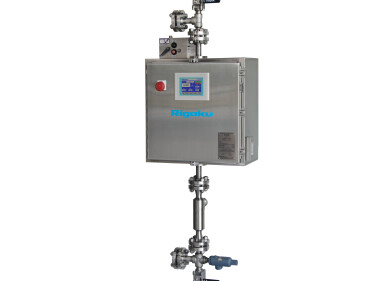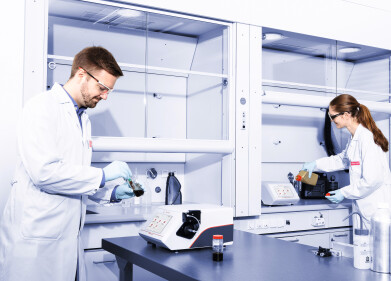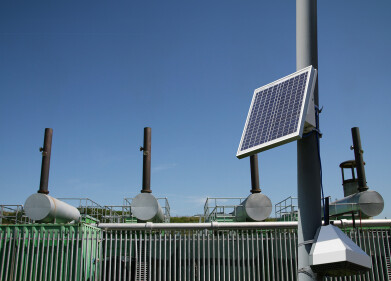Measurement and Testing
Why is Europe Selling Dirty Fuel to Nigeria?
Jul 23 2020
A new laboratory analysis from an international resource watchdog group has revealed black market fuel from makeshift refineries hidden in the Niger delta is often cleaner than petrol sold to the African country by Europe. While the black market fuel made from stolen oil is highly toxic, the study warns that petrol imported from Europe is often dirtier than fuel produced in the illegal “bush” refineries.
Shell, Chevron and Exxon are among the energy giants that extract Bonny Light, a premium quality Nigerian crude with low sulphur content and high API gravity. While up to two million barrels per day of Bonny Light is drilled from the Niger delta, little is refined in Nigerian as the country’s state-owned refineries are currently closed or don’t have the capacity.
Nigeria relies on toxin-heavy fuel from Europe
Instead, Nigeria imports approximately 900,000 tonnes a year of low-quality, toxin-heavy fuel manufactured in Europe. This stock is padded out with fuel produced in hundreds of secret bush refineries that siphon oil from Nigeria’s oil pipeline network.
The bush refinery fuel has a dirty reputation, though according to non-governmental organisation the Stakeholder Democracy Network (SDN), the low-grade diesel imported from Europe exceeds daily EU pollution limits by up to 204 times. For petrol, the pollution emissions are around 43 times higher than legal EU levels. In comparison, “unofficial” diesel produced in Nigeria exceeds EU sulphur standards by 152 times. Petrol is on par with European imports, emitting 40 times more pollution that allowed under EU laws.
Nigeria faces an air pollution crisis
As a result, the SDN warns that Nigeria is plagued with some of the worst air pollution levels on the planet. As well as damaging vehicle engines, the report warns the dirty fuel is having a detrimental impact on public health and national air quality.
“Our research suggests that Nigeria is having dirty fuel dumped on it that cannot be sold to other countries with higher and better implemented standards. The situation is so bad that the average diesels sampled are of an even lower quality that that produced by artisanal refining camps in the creeks of the Niger delta,” warns SDN programme manager Florence Kayemba.
Dirty fuel particularly concerning during COVID-19 pandemic
The dirty fuel is a major contributor to Nigeria’s public health crisis, with the latest data suggesting around 114,000 people die due to air pollution related causes every year. Cases of asthma, lung failure, respiratory disease and heart attacks are particularly severe in cities such as Port Harcourt, Kaduna and Onitsha. In the face of the COVID-19 pandemic, researcher Matthew Halstead says the high pollution levels are especially concerning.
“This is even more concerning at a time when Nigeria is facing an outbreak of coronavirus. High levels of pollution and pre-existing respiratory and other health conditions may increase the risk that Covid-19 poses to the health of the population,” he says.
Want to know more about the importance of global energy standards? ‘An international standard for CO2 purity could support safe and efficient CCS operations’ explores the concept of Carbon Capture and Storage (CCS) and the magnitude of meeting gas purity criteria.
Digital Edition
PIN 25.5 Oct/Nov 2024
November 2024
Analytical Instrumentation - Picturing Viscosity – How Can a Viscometer or a Rheometer Benefit You? - Sustainable Grease Formulations: Evaluating Key Performance Parameters and Testing Method...
View all digital editions
Events
Nov 27 2024 Istanbul, Turkey
Biogas Convention & Trade Fair 2024
Nov 27 2024 Hanover, Germany
Dec 03 2024 Dusseldorf, Germany
Dec 08 2024 Anaheim, CA, USA
Turkey & Black Sea Oil and Gas
Dec 11 2024 Istanbul, Turkey



















